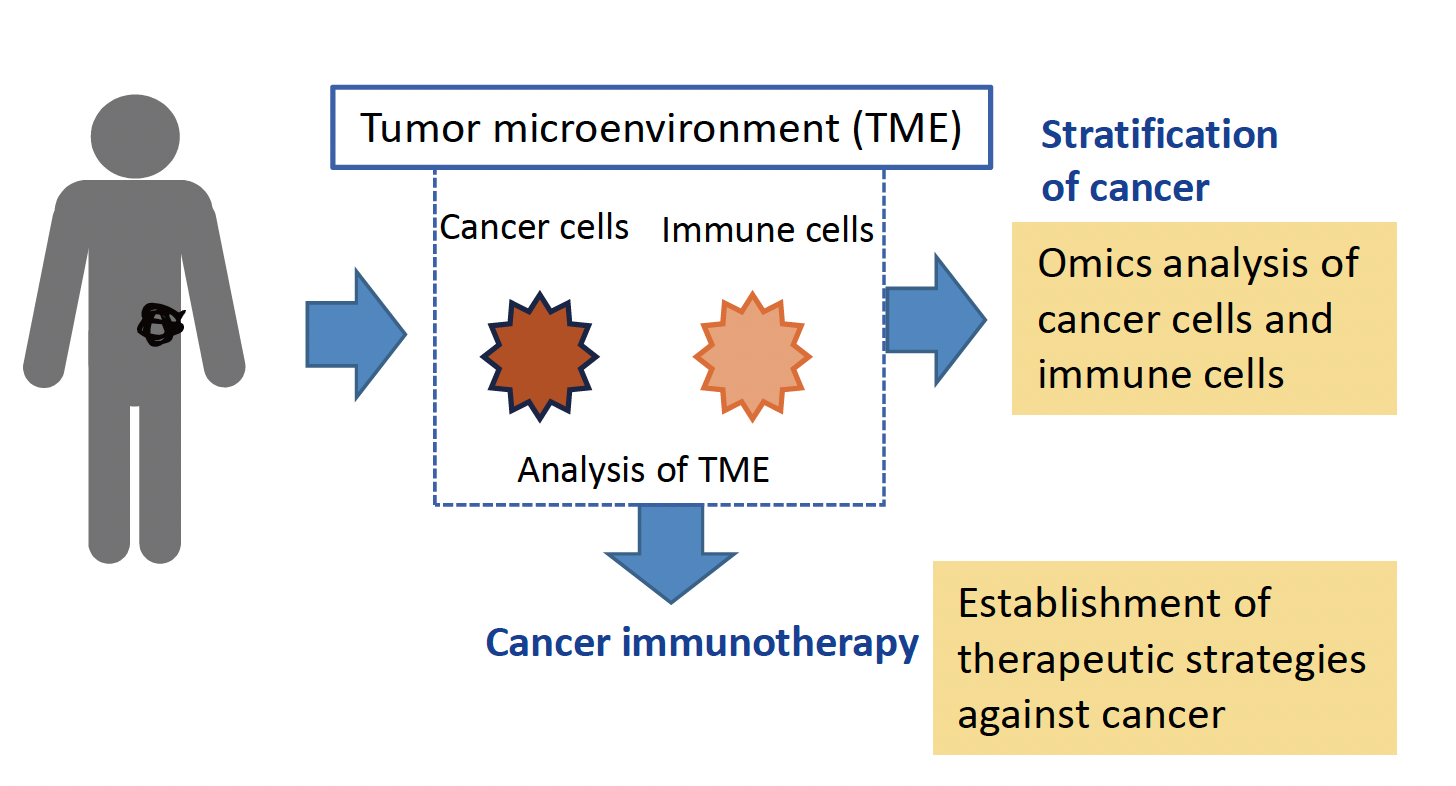Projects
Cancer Immunology
The immune system recognizes tumor cells and can mediate antigen-specific tumor rejection under certain conditions, however the tumors often evade the immune network. To ac-complish this escape, tumors may mediate immunosuppression through various soluble and cellular mechanisms. Understanding the role of the immune system in the tumor microenvironment (TME) will lead to a variety of specific approaches designed to initiate or enhance antitumor immunity (Figure). The groups in cancer immunology are using both murine models and human clinical samples from a variety of cancers to find crucial mol-ecules for therapy. Tsunoda’s group (Lab for Medical Science Mathematics) brought the ideas and methods from mathematics and computational sciences into play. They demonstrated the re-sults of immunogenomic analysis and provided a new classifica-tion of gastric cancer. This group also established a new method of quantifying multicellular colonization in tumor metastasis using NGS data. Nakagawa’s group (Lab for Cancer Genom-ics) analyzed genome and RNA sequence data from esophageal cancers and showed that the immune response in the TME was significantly corelated with the chemotherapy response. They also used RNA sequencing data to search for candidate drugs that could modulate the immune microenvironment. Ishikawa’s group (Lab for Human Disease Models) has identified acute myeloid leukemia (AML)-initiating cells by performing xenogeneic trans-plantation followed by DNA and RNA sequencing. By integrating the results, they found critical molecules in individual patients and linked the vulnerabilities with AML initiating genetic events. Fujii’s group (Lab for Immunotherapy) identified immunogenic neoantigens and confirmed that DCs pulsed with these peptides elicited antitumor CTL responses. As part of the effort to develop translational research (TR) applications, Koseki’s group (Lab for Developmental Genetics) has started an iPS-NKT cell clinical trial for head and neck cancer. Fujii’s group has recently done an investigator-initiated Phase I clinical trial of aAVC-WT1 therapy against AML and is preparing for a phase II study. These TR projects have been supported by the RIKEN Drug Discovery and Medical Technology Platforms (DMP).




